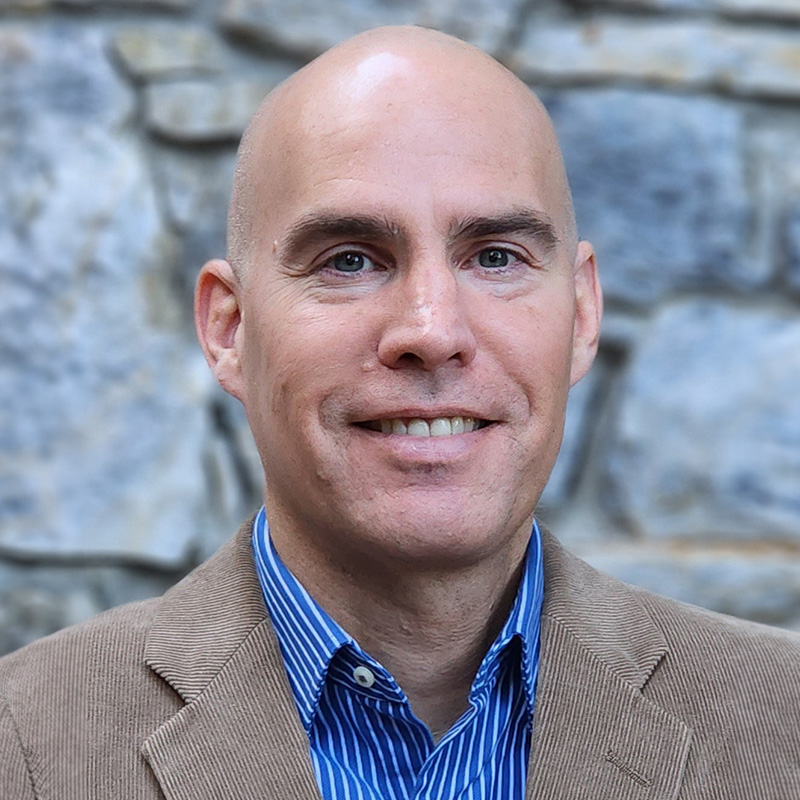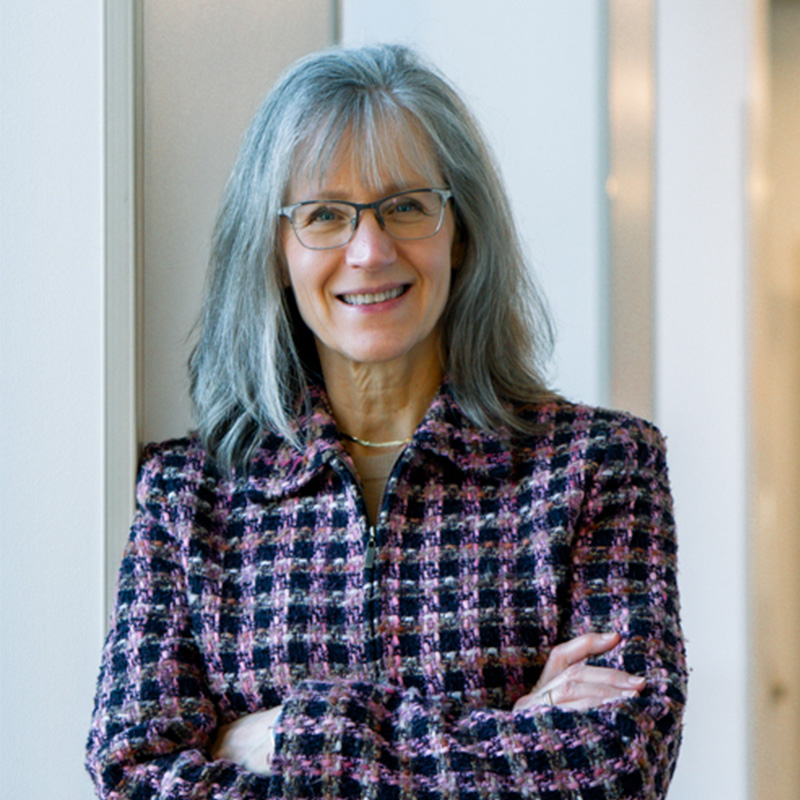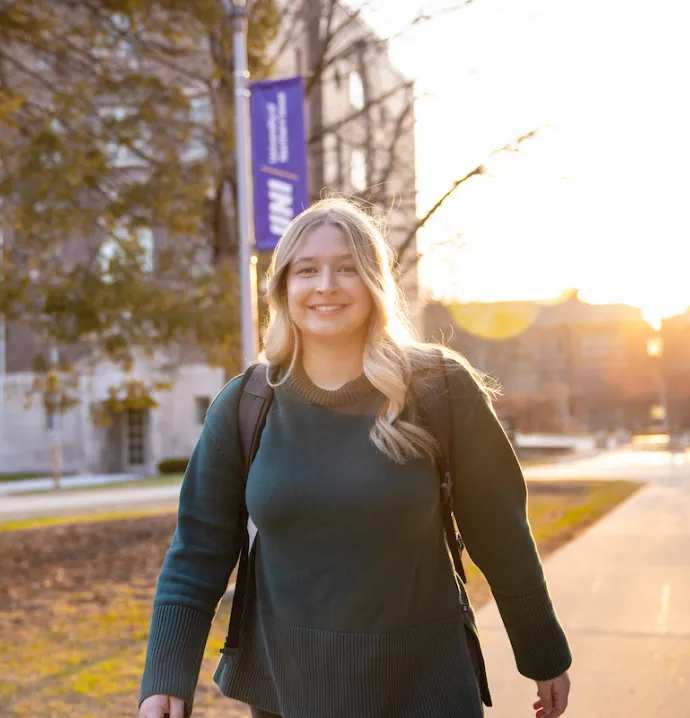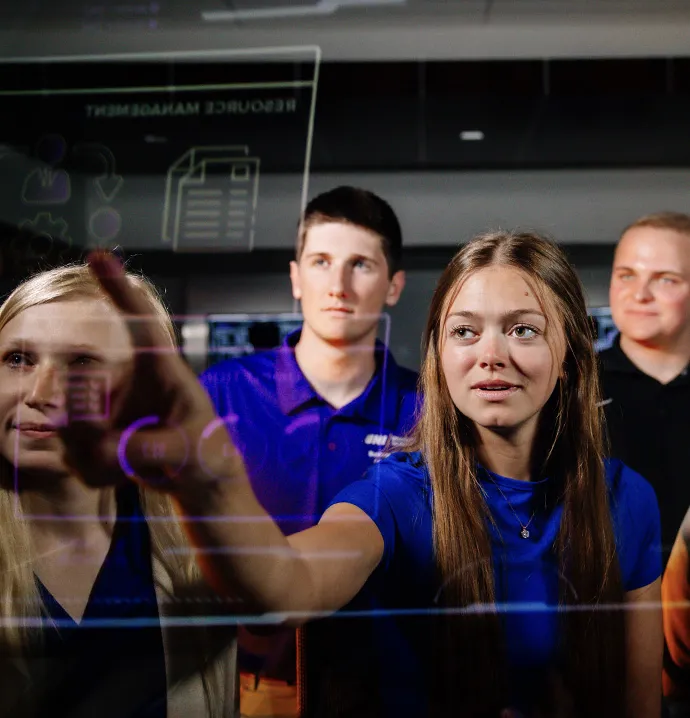New Wilson Ethics Fellow Nicholas Sars inspires students to embrace ethical leadership
New Wilson Ethics Fellow Nicholas Sars inspires students to embrace ethical leadership
Nicholas Sars, an assistant professor of instruction, was hired as the second Wilson Ethics Fellow and started earlier this semester. He joins Robert Earle, who was appointed earlier this year. Their roles as Ethics Fellows are a key part of David Wilson’s $25 million gift to the Wilson College of Business, which established the fellowships and emphasizes ethics education within the college and throughout the university.
Sars and Earle are dedicated to expanding ethics education for business and non-business students at UNI, working with the David W. Wilson Chair in Business Ethics to increase the number of students – across campus – who take an ethics course during their time at UNI.

The dedication to ethics education from David Wilson provides a unique opportunity to teach students about this important topic – something they can use in their daily lives, whether that’s in business or not. Ethics education is something that can help students live better overall lives.
Sars previously taught philosophy at Santa Clara University in California and Tulane University in Louisiana. His research focuses on questions about free will and moral responsibility, and he aims to apply his expertise in these areas to practical domains like business ethics, technology ethics and biomedical ethics.
He is currently teaching Business, Ethics and Society and a new general education course called Ethics for Professional Life, which encourages students to engage in critical thinking and writing about what ethics will mean in their future professions. The course addresses many common ethical dilemmas they can expect to face.
“We’re thrilled to welcome Nick and expand our ethics education within the Wilson College of Business and beyond,” said Dean Leslie Wilson. “Nick brings a strong background in philosophy and ethics and understands the importance of connecting those principles to practical examples. This education will help students better identify ethical dilemmas at a point where they can live their values in the decisions they make. ”
Sars believes ethics education forces students to grapple with moral decision-making and its complexity, which improves critical thinking. These are skills applicable in all parts of life, whether that be business, accounting, law or another field.
“If we can start to wrap our heads around the complexities of ethical questions, it will force us to become better critical thinkers,” Sars said. “In business, that helps students become better decision-makers, ultimately helping them become better accountants, financial analysts or managers.”
When learning about UNI and the Wilson Ethics Fellow position, Sars was fascinated by UNI’s dedication to ethics, driven in large part by Wilson. Wilson graduated from the Department of Philosophy and World Religions at UNI, and launched Wilson Automotive, one of the largest privately-held automotive dealerships in the U.S.
Wilson’s ability to connect his business success with ethical practices is a shining example that Sars hopes to represent to his students through his teaching and research. Sars is excited by the prospect of facilitating that kind of ethical connection within his students using the example of a UNI graduate who credits his success with a foundation in ethics.
“David Wilson practiced what he believes, showing that ethics education plays a role in success,” Sars said. “His funding will help young people improve their ethics knowledge, which can turn into a virtuous cycle that leads to them doing their own good in the world and passing that knowledge on.”

We’re thrilled to welcome Nick and expand our ethics education within the Wilson College of Business and beyond. Nick brings a strong background in philosophy and ethics and understands the importance of connecting those principles to practical examples. This education will help students better identify ethical dilemmas at a point where they can live their values in the decisions they make.
Sars believes ethics education forces students to grapple with moral decision-making and its complexity, which improves critical thinking. These are skills applicable in all parts of life, whether that be business, accounting, law or another field.
“If we can start to wrap our heads around the complexities of ethical questions, it will force us to become better critical thinkers,” Sars said. “In business, that helps students become better decision-makers, ultimately helping them become better accountants, financial analysts or managers.”
When learning about UNI and the Wilson Ethics Fellow position, Sars was fascinated by UNI’s dedication to ethics, driven in large part by Wilson. Wilson graduated from the Department of Philosophy and World Religions at UNI, and launched Wilson Automotive, one of the largest privately-held automotive dealerships in the U.S.
Wilson’s ability to connect his business success with ethical practices is a shining example that Sars hopes to represent to his students through his teaching and research. Sars is excited by the prospect of facilitating that kind of ethical connection within his students using the example of a UNI graduate who credits his success with a foundation in ethics.
“David Wilson practiced what he believes, showing that ethics education plays a role in success,” Sars said. “His funding will help young people improve their ethics knowledge, which can turn into a virtuous cycle that leads to them doing their own good in the world and passing that knowledge on.”




